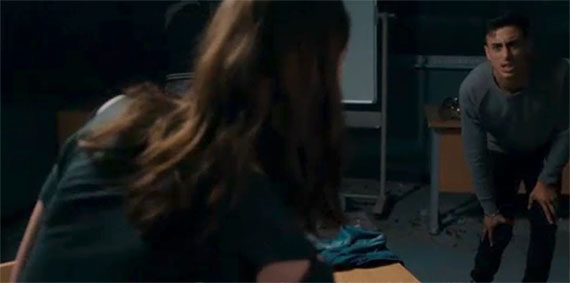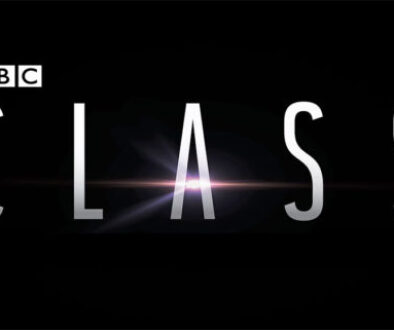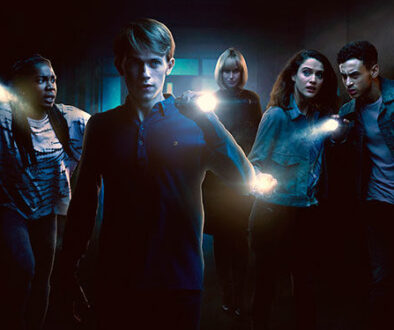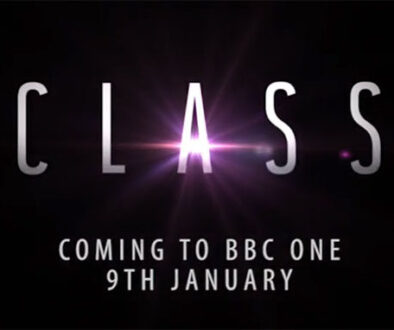Class: Episode 6 “Detained” Review
Clint Hassell gives his verdict on the sixth episode of Doctor Who’s new spin-off.
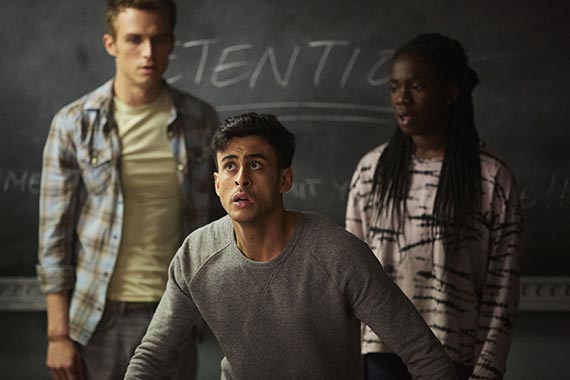
Note: this review contains full spoilers for the sixth episode, available on BBC3 now.
Hey, everyone! Welcome back for another week of analysis and discussion about Class. If everyone would set their sonic devices on “silent,” we’ll start the discu – –
Uh, Clint?
Yes?
Why am I here? You only ever trot me out when you write your post-series finale, “questions, questions” article. While last week certainly felt like a finale, I distinctly remember watching a new episode, this week.
Um, I guess I wanted to bounce my ideas about this week’s episode off of someone. My notes over the episode are more esoteric than normal, so, maybe having you here will make for a more cohesive, fun article.
OK, well, what did you think of “Detained”?
Um . . . I was expecting . . . more . . . ? With all of the hype and all of the publicity material we’ve seen, this episode just seemed poised to reveal unforeseen aspects of these characters. I was expecting something akin to Torchwood’s “Cyberwoman” or “Greeks Bearing Gifts” – – small, isolated episodes that redefined how we thought of the characters.
And you didn’t see that, in “Detained”?
Nothing that was forcefully confessed, under the influence of the truth asteroid meteor, was anything the narrative hadn’t touched on in previous episodes. We’ve seen evidence that Matteusz is afraid of Charlie – – he went behind Charlie’s back to investigate the cabinet of souls, for example. We’ve seen Tanya struggle to make friends, because she is so much younger than the other characters. The first episode blatantly conveyed that Charlie really does want to wipe the Shadow Kin out, but doesn’t, because of his duty as caretaker of the legacy of his people. All of this seems more confirmation than revelation.
So, you have a script that is very talky yet doesn’t really move the narrative forward – – that’s bad scriptwriting. You don’t need me here to write that review.
Except, I’m not sure it is bad scriptwriting. In fact, maybe it’s great scriptwriting because these storylines have been effectively foreshadowed and so well portrayed that these revelations just feel like no-brainers.
So, the forced confession storyline wasn’t as effective at furthering character development as you’d hoped?
It’s not that. I think that the episode wasn’t about what was confessed, but about all of the things revealed in between those confessions.
So, the monster was lacking.
No, the monster was serviceable. But it was merely the means to get us to the discussion points I think Ness wanted us to consider.
Like?
Like, “what is truth?” Notice that the characters all treat these “true” confessions as if they are infallibly accurate, yet Matteusz states that they are “the smallest part, angriest part, the most fearful part” of the truth. Further, these “truths” don’t always align. Tanya’s “truth” that the others look at her like a little sister is only “true” to her.
We’ve not really seen evidence that any of the other students treat her differently because she is younger.
Exactly! And I don’t think that’s unintentional.
Oh! So, it’s like when Matteusz says that Tanya picking up the meteor was “clever,” but Ram says that it was “stupid.”
Yes! Or, when April responds to Ram’s “truth” that he loves her more than she ever will him. “You don’t know that,” she says, and he responds, “That’s how it feels.” The truth is subjective. The students are confessing their individual truths, and then struggling when they realize that these “truths” are either completely wrong (Tanya), or conflict with another’s “truth” (Ram and April).
Well, that certainly broadens the concept of “truth” to also include “empathy,” the ability to understand another’s point of view. That’s a good lesson for Class’ target audience of teens, no?
Yes, and continues Ness’ theme of tolerance. The truth is, at that age, everyone feels “different” and “left out.” While that is not revelatory to adults, per se, it is a message so important that the narrative repeats it twice.
So, from individual “truths,” Ness derived a universal truth?
He did better than that! Look at Tanya, who specifically defends the hurtful things she says by stating that she speaks the “truth,” as if that somehow absolves her. It doesn’t, demonstrating that individual truths can be the basis for needless conflict. Now, mirror that with Tanya’s honest apology, in the episode’s third act, which illustrates that accepting another’s truth can be the first step in conflict resolution.
Oh! And that’s when the episode pointedly states that true friendship doesn’t stop, even when there are disagreements and fighting.
I see what you did there. I do not approve.
“We’ll never stopped being friends, you airbag!”
And, all of this discussion feeds into the series-long argument about whether the Rhodian punishment is a just punishment, or institutionalized slavery.
So, “Detained” does forward the narrative.
It forwards a theme, at least. This is one of those times when it is evident that having Ness as Class’ sole writer is one of the series’ biggest assets. Weighty, consequential themes are revisited, but not directly restated.
We’re not debating whether the Doctor is “a good man” through a series of stories, of varying tone, written by several writers, but one theme – – can there be justice without empathy? – – from one writer’s singular point of view?
. . . er, yes. You have been paying close attention!
Thanks. I just came up with that!
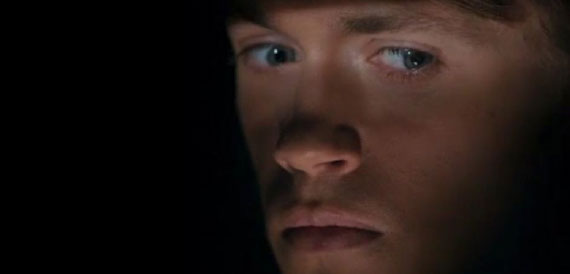
That continuity you just touched on is also evident in the series’ characterizations. Matteusz may be the least developed of the cast, but he is consistently written. This is the fourth time in as many stories that he has remained quietly observant until he decides to take brave, decisive action.
How adorable is it that Matteusz tries to throw the meteor out of the room when Charlie seems determined to throw himself into the ostensible void?
It’s evident, even before he is compelled to speak his truth, that Matteusz loves Charlie – – he’s willing to sacrifice himself for him.
Still, what will that self-sacrifice buy him in the finale?
Right?!
“I love you, and it’s also the truth that I’ll lose you.” Yeah, that doesn’t bode well.
Still, this is Matteusz’s first relationship, and it’s rare that people end up with their first boyfriends. That’s part of dating. We get better at it. We refine our tastes. We realize what we want, and what we don’t. And, we grow from the experience. Matteusz is seeing somethings he doesn’t like, in Charlie, and is having to reconcile that with his need for physical and emotional security. That’s also a good message for Class’ teen audience because that’s real life.
I like that Tanya is again clever, and thoughtful, and inquisitive.
Did you notice that Tanya and Matteusz – – the two characters most in need of love – – are the only two to sacrifice themselves for the group?
That’s true! They do it, first, while the others have to be convinced!
It’s a really nice callback to the conversation about love, in “Nightvisiting,” which defined love as the act of combining resources with another, “not the wish to do it.” In “Detained,” Charlie mentions that murder and the desire to commit murder are considered the same thing: “For a Rhodia, a wish is the same as an action.”
Those sound like conflicting philosophies.
They are, but that makes love even more special, because it specifically requires an action, not just a thought that implies an action.
So, “love” is literally . . . a verb?
To coin a phrase, yes.
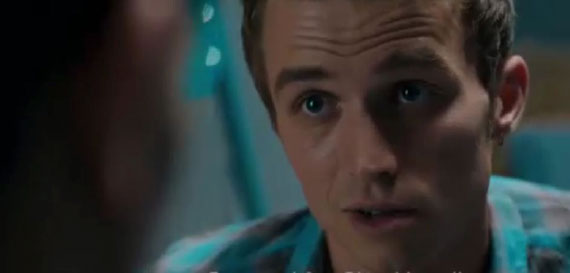
Give me another example of a minor detail revealing greater depth.
Charlie’s cleithrophobia.
Ugh! That was terrible, right? Sudden appearance of a character trait because . . . “plot”? Puh-lease. The only thing his cleithrophobia accomplished was that it served as the impetus for Matteusz to try to throw the meteor rock out of the room.
Well, and his panic attack, in the third act, gave Matteusz a reason to console Charlie, reuniting the two, after Matteusz’s confession, in the first act.
Yeah – – so the audience is even more sad when Matteusz dies in the finale!
(sigh) Sadly, yes. But, consider this: what does it say that Charlie is terrified of being confined, when his entire race’s idea of Heaven exists within a cabinet? Has this fear recently emerged, considering Charlie is the last of his kind and is now having to consider what being inside that cabinet of souls might mean?
Maybe it was just to make him appear weaker and ineffectual so that his third-act “confession” seems all the more powerful and heroic. Or, maybe the plot point is important in the finale.
Maybe! Again, Ness has written these eight episodes with an eye towards economy, so both are possible. There is evidence that Quill knows about Charlie’s fear and exploits it, in this episode.
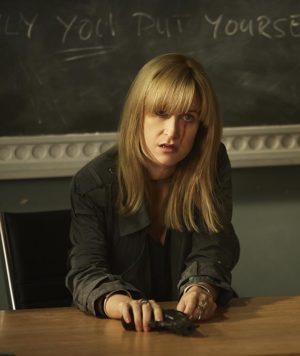 Ah, Katherine Kelly. How great was it to finally see Quill finally sport the longer hair she has in the publicity photos?
Ah, Katherine Kelly. How great was it to finally see Quill finally sport the longer hair she has in the publicity photos?
Oh, gosh, yes. Her usual, cropped wig may read “severe,” but it has severely cramped Kelly as an actress.
And the unexpected reveal that “Detained” is the first episode of a two-part story!
It’s more like “one-half of,” rather than “first part of,” since both “Detained” and next week’s “The Metaphysical Ending, or What Quill Did” seem to take place concurrently. I will say that, after this episode, I am excited to see director Wayne Yip’s follow-up, next week, though I am surprised that the episodes apparently were not double banked.
So . . . final thoughts?
I think, for a bottle episode, “Detained” does exactly what it is supposed to: its reduced budget makes up for the money spent producing “Brave-ish Heart” (and, likely, next week’s “The Metaphysical Engine”). However, “Detained” makes the most of its limited focus to highlight Class’ two best features – – Ness’ continuity and the five young actors in the cast.
They were amazing, this week!
Yeah, they were. That the cast could ratchet up their emotions to display anger believably, without sliding into scenery-chewing, or losing sight of the subtleties of their characters, was inspiring. For all of them to display this level of craft, despite only inhabiting these roles for a handful of episodes, is evidence of their talent.
I hope that the same can be said for Katherine Kelly, next week.
You know, I’m hopeful. She certainly has displayed glimpses of depth that, so far, the script has not consistently matched.
Perhaps, like you’ve said, this is part of Ness’ careful plan for the series – – to test Quill’s mettle in a solo adventure that reveals aspects of her character and backstory about which the series has thus far only hinted?
I will say this, thinking back to my initial comment that “Detained” does little to reveal, but mostly confirms what we already know about our cast: next week’s episode is ostensibly student-lite. If the series feels the need to establish where are these characters currently are, in order to have a basis for comparison to their post-finale status, how can we expect anything less than an epic, plot-driven, character-defining resolution to Class’ narrative?
